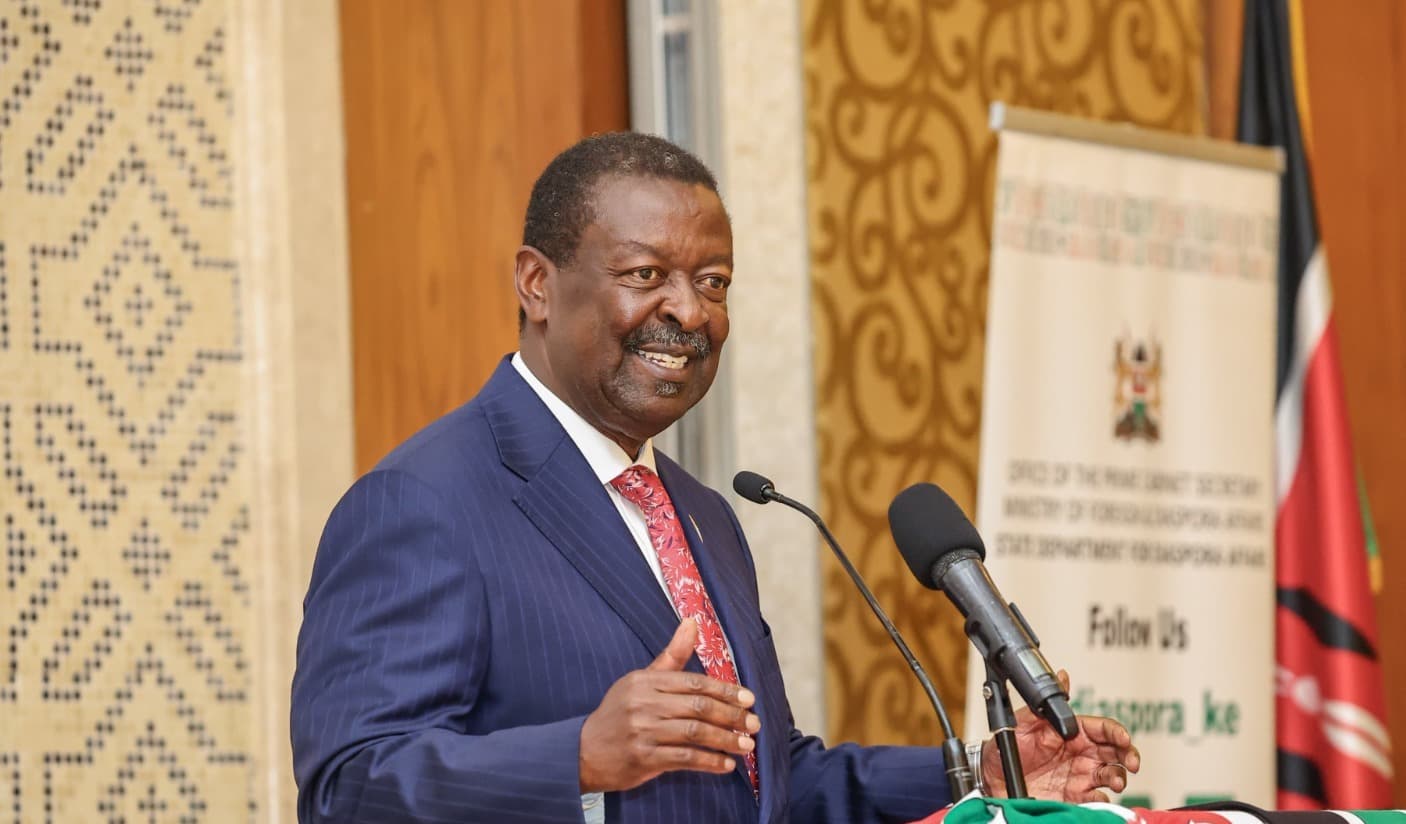We're loading the full news article for you. This includes the article content, images, author information, and related articles.
Prime Cabinet Secretary Musalia Mudavadi has dismissed a New York Times investigation into the abuse of Kenyan workers in Saudi Arabia as “misleading and sensational,” championing the economic benefits of labour migration amid growing calls for reform.

NAIROBI, Kenya – On Monday, 24th November 2025, EAT, the Kenyan government mounted a staunch defense of its labour migration policies with Saudi Arabia, following a damning exposé by The New York Times that detailed systemic abuse, exploitation, and deaths of Kenyan domestic workers. Prime Cabinet Secretary and Cabinet Secretary for Foreign and Diaspora Affairs, Musalia Mudavadi, speaking before the National Assembly on Wednesday, 19th November 2025, characterized the report as “misleading, careless, and sensational,” insisting the government has taken significant steps to protect its citizens abroad.
The controversy places into sharp relief the critical dilemma facing Kenya: balancing the immense economic contributions of diaspora remittances against persistent and credible reports of grave human rights violations. The New York Times investigation, published in mid-November 2025, alleged that senior government officials and their families have financial interests in recruitment and insurance agencies involved in the labour export industry. The report presented harrowing accounts of physical and sexual abuse, wage theft, and confinement, alleging that Kenya has secured weaker protections for its workers compared to other labour-sending nations.
In his rebuttal, Mudavadi asserted that the administration of President William Ruto has implemented “bold, deliberate, and forward-looking steps” to safeguard Kenyans. He highlighted the deregistration of over 600 “rogue” recruitment agencies and the establishment of a mandatory insurance cover for all migrant workers, provided at no cost to them. “It is therefore misleading... for any media outlet to insinuate that the Government has, at any point, participated in or tolerated slavery or the exploitation of Kenyans,” Mudavadi stated.
The government’s defense is heavily anchored in the economic significance of diaspora remittances. According to the Central Bank of Kenya (CBK), these inflows are the nation's largest source of foreign exchange, surpassing traditional sectors like tourism and tea. Remittances hit a record KSh 674.1 billion in 2024, a significant increase from the previous year. Saudi Arabia has recently surpassed the United Kingdom as the second-largest source of these funds, sending US$37.4 million in July 2024 alone. Mudavadi credited government reforms, including the creation of the State Department for Diaspora Affairs, for a projected rise in remittances to Sh1 trillion by 2027.
However, human rights organizations argue this economic focus obscures a grim reality. A May 2025 report by Amnesty International, titled “Locked in, left out,” documented how Kenyan domestic workers in Saudi Arabia are subjected to conditions amounting to forced labour and human trafficking. The report detailed 16-hour workdays, denial of days off, passport confiscation, and severe physical and sexual abuse, fueled by racism and discrimination. According to Kenya's Ministry of Foreign Affairs, at least 274 Kenyan workers, mostly women, have died in Saudi Arabia since 2020, with official causes often listed as “cardiac arrest” despite evidence of physical trauma.
At the heart of the exploitation is the *kafala* (sponsorship) system prevalent in many Gulf countries. This legal framework ties a migrant worker's immigration status to their employer, granting employers immense control and making it difficult for workers to leave abusive situations. Although Saudi Arabia has announced reforms to the system, rights groups contend that enforcement is weak and domestic workers remain largely excluded from substantive labour law protections.
The Kenyan government maintains it is actively working to improve conditions. Mudavadi announced that a new, more comprehensive bilateral labour agreement with Saudi Arabia is nearing completion. This follows previous agreements aimed at standardizing contracts and protecting workers. Recently, a new minimum wage of KSh 34,455 (SAR 1,000) for Kenyan workers was announced, set to take effect in February 2026. Yet, critics point to a history of insufficient government action. Parliamentary reports and human rights bodies have for years called for stronger oversight of recruitment agencies and better support from Kenyan embassies, which are often described as under-resourced and unresponsive.
As the government defends its record by pointing to rising remittances and regulatory reforms, the powerful testimonies from returning workers and the data from rights organizations paint a conflicting picture. The core challenge remains: ensuring that the pursuit of economic opportunity for thousands of Kenyans does not come at the cost of their fundamental human rights and safety. FURTHER INVESTIGATION REQUIRED.
Keep the conversation in one place—threads here stay linked to the story and in the forums.
Sign in to start a discussion
Start a conversation about this story and keep it linked here.
Other hot threads
E-sports and Gaming Community in Kenya
Active 9 months ago
The Role of Technology in Modern Agriculture (AgriTech)
Active 9 months ago
Popular Recreational Activities Across Counties
Active 9 months ago
Investing in Youth Sports Development Programs
Active 9 months ago